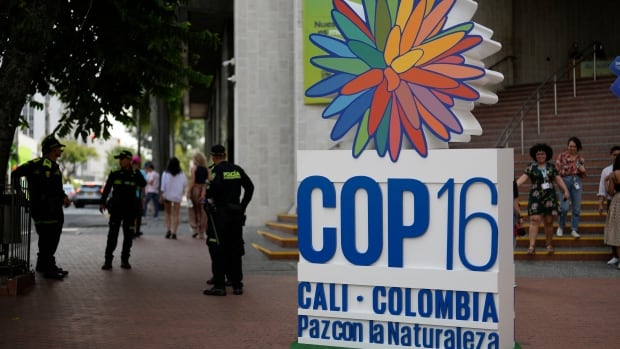As It Happens6:32Maryland just issued 175,000 pot pardons. The attorney general says it’s a matter of racial justice
Maryland’s governor issued 175,000 pardons for marijuana convictions in one fell swoop on Monday.
It’s the largest state-level program of its kind in the U.S., and one that Attorney General Anthony Brown says will impact people of colour the most.
“In Maryland and across the United States, this so-called war on drugs has had a detrimental effect, particularly on Black and brown communities. People have difficulties getting jobs, housing opportunities, educational opportunities,” he told As It Happens host Nil Köksal.
“You can only imagine how it impacts families and begins to erode and tear apart communities.”
In Canada, meanwhile, a program to pardon minor pot offences has seen little uptake since it was first introduced five years ago, and logistical challenges are hampering a federal effort to hide cannabis convictions from background checks.
‘It means a lot’
Gov. Wes Moore announced Maryland’s pardons on Monday, nearly two years after residents voted in November 2022 to legalize marijuana in a ballot referendum.
“We cannot address the benefits of legalization if we do not address the consequences of criminalization,” Moore said.
The pardons cover convictions related to misdemeanour possession of cannabis and certain convictions for misdemeanour possession of drug paraphernalia.
Electronic court records are expected to be updated within two weeks, and convictions are expected to be eliminated from criminal background checks in 10 months.
Maryland Gov. Wes Moore announced Monday the state will issue 175,000 pardons for marijuana convictions in an effort to combat racial injustice and undo harm caused by the war on drugs.
Shiloh Jordan, who lost his job on his second day at work after a minor cannabis conviction appeared in a background check by his employer, said the pardon “means a lot.”
“I know a lot of people that have been convicted for petty cannabis charges, and it really affected their whole way of life and their whole way of thinking,” Jordan said at the news conference, where he stood alongside Moore and other state officials.
Heather Warnken, executive director of the University of Baltimore Law School’s Center for Criminal Justice Reform, described the pardons as “a win for thousands of Marylanders getting a fresh start to pursue education, employment, and other forms of economic opportunity without the stain of a criminal conviction.”
What’s happening in Canada?
Moore issued the pardons by way of an executive order, and those eligible for pardons won’t have to apply.
In Canada, meanwhile, “it’s a much more challenging process,” says Andrew Tanenbaum, director of the non-profit organization Pardons Canada, which helps Canadians navigate the system.
The Liberal government legalized cannabis in Canada in 2018 and introduced an expedited pardon process for pot possession charges.
While it simplifies the pardons process, Tanenbaum says Canadians still have to apply and undergo a police check to “prove you’ve been out of trouble in the recent past.”
Busted with a joint at 18, an employee with a federal contractor says Ottawa’s pardon process for cannabis convictions is broken after he has lost his job over the charge that dates back to the late 1980s.
The federal government initially estimated that 10,000 Canadians would be eligible for pardons under the program. But earlier this month, the Parole Board of Canada told CBC News that only 1,300 have applied, and just 845 pardons had been granted.
In some cases, applications were rejected on technicalities.

In an effort to speed things along, the NDP passed a motion in 2022 that would automatically “sequester” Canadians’ pot possession convictions — in other words, hide them from criminal record background checks.
But that, too, has proved logistically challenging.
Criminal records at the federal level are handled by the RCMP, Tanenbaum noted, but there are also “repositories across thousands of local police stations.”
The federal government previously told CBC News it’s on track to meet its November 2024 deadline for sequestering records, but couldn’t say how many have been handled so far.
Tanenbaum says it’s possible there just aren’t that many people in Canada who still need pot-related pardons, as cannabis convictions were already declining in the years leading up to legalization.
But for those who do have convictions hanging over their heads, he says the consequences can be dire.
“Pretty much every employer in the country is doing criminal checks. So if you do have something on your record, even if it’s from 20 years [ago], it’s getting in the way of you getting work,” he said.
Advocates, including the Canadian Civil Liberties Association, have long been calling on Canada to take a blanket approach to pot pardons.
Asked whether mass pardons like Maryland’s are possible here, a spokesperson for Public Safety Canada deferred questions to the Parole Board of Canada, which was unable to provide a statement before deadline.
More work to do
Gov. Brown, meanwhile, says his the pardons are just a first step in undoing the harm caused by the war on drugs in Maryland.
“The pardons address historical wrongs. And now we need to look at present day,” he said. “We see the presence of racial bias because we see disproportionate arrests and convictions and stiffer sentences that are against people of colour. So there’s still a lot of work to do.”
He says he’s optimistic for the future, especially as the state’s first Black attorney general working with its first Black governor.
“We will be very intentional about addressing disparities and inequities,” he said. “There’s a new day in Maryland.”








